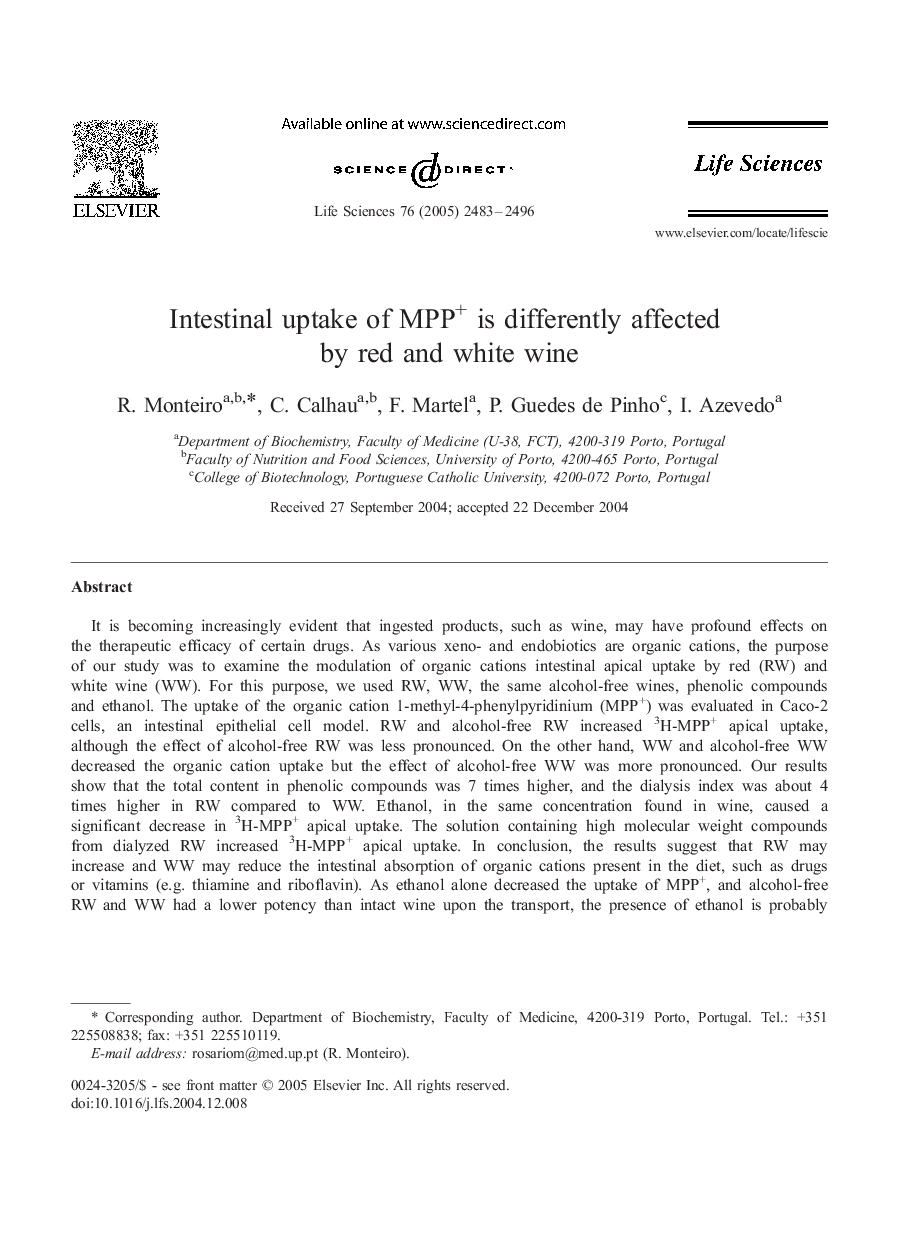| Article ID | Journal | Published Year | Pages | File Type |
|---|---|---|---|---|
| 2555188 | Life Sciences | 2005 | 14 Pages |
It is becoming increasingly evident that ingested products, such as wine, may have profound effects on the therapeutic efficacy of certain drugs. As various xeno- and endobiotics are organic cations, the purpose of our study was to examine the modulation of organic cations intestinal apical uptake by red (RW) and white wine (WW). For this purpose, we used RW, WW, the same alcohol-free wines, phenolic compounds and ethanol. The uptake of the organic cation 1-methyl-4-phenylpyridinium (MPP+) was evaluated in Caco-2 cells, an intestinal epithelial cell model. RW and alcohol-free RW increased 3H-MPP+ apical uptake, although the effect of alcohol-free RW was less pronounced. On the other hand, WW and alcohol-free WW decreased the organic cation uptake but the effect of alcohol-free WW was more pronounced. Our results show that the total content in phenolic compounds was 7 times higher, and the dialysis index was about 4 times higher in RW compared to WW. Ethanol, in the same concentration found in wine, caused a significant decrease in 3H-MPP+ apical uptake. The solution containing high molecular weight compounds from dialyzed RW increased 3H-MPP+ apical uptake. In conclusion, the results suggest that RW may increase and WW may reduce the intestinal absorption of organic cations present in the diet, such as drugs or vitamins (e.g. thiamine and riboflavin). As ethanol alone decreased the uptake of MPP+, and alcohol-free RW and WW had a lower potency than intact wine upon the transport, the presence of ethanol is probably important for the solubilisation/bioavailability of the components endowed with the transport modulating activity.
